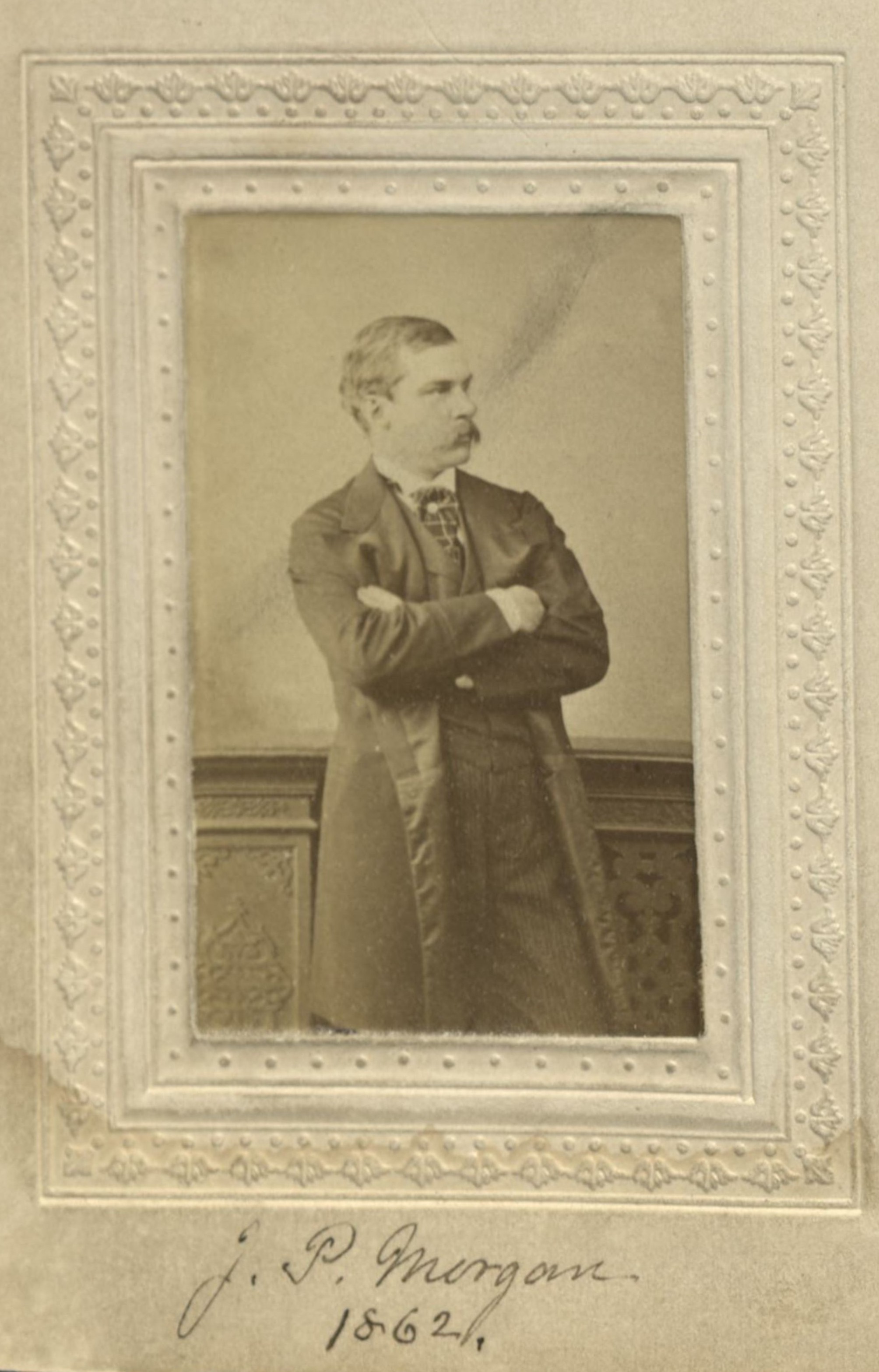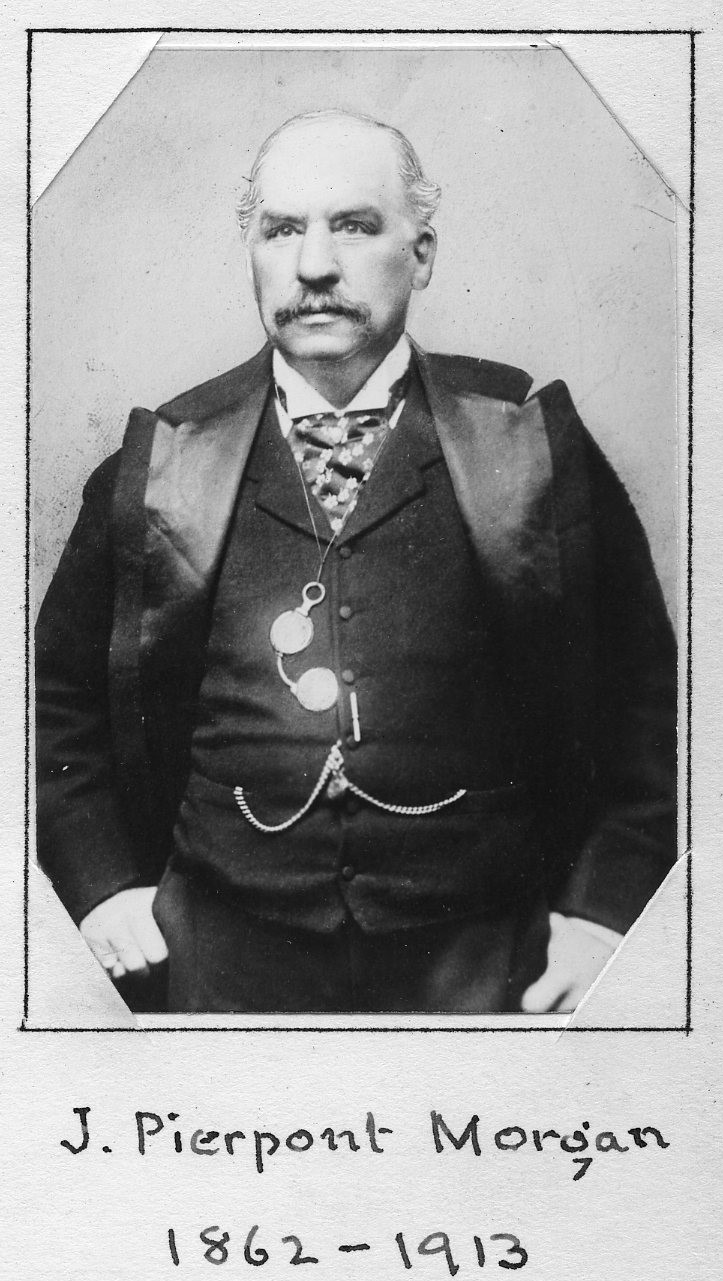Financier/Philanthropist/Collector
Centurion, 1862–1913
Born 17 April 1837 in Hartford, Connecticut
Died 31 March 1913 in Rome, Italy
Buried Cedar Hill Cemetery , Hartford, Connecticut
, Hartford, Connecticut
Proposed by Jonathan Sturges
Elected 6 December 1862 at age twenty-five
Archivist’s Note: Proposed for Century membership by his father-in-law after the death of first wife Amelia née Sturges. Cousin of Francis Goodwin and James J. Goodwin; son-in-law of Jonathan Sturges and Charles Tracy; brother-in-law of George H. Morgan, Frederick Sturges, and Charles Edward Tracy; father of J. Pierpont Morgan Jr.; father-in-law of Herbert L. Satterlee; uncle of Junius S. Morgan; grandfather of Alexander Hamilton, Henry Sturgis Morgan, and Junius Spencer Morgan Jr.; grandfather-in-law of Paul Geddes Pennoyer; great-grandfather of Paul G. Pennoyer and Robert M. Pennoyer.
Proposer of:
Century Memorial
A great divine while strolling by a river in meditation on the huge and weighty doctrine which he intended to expound in one lecture, saw a child ladling the river with a spoon into a little trench. Chiding its futile efforts, he was suddenly struck with the foolishness of his own. So we will not try to ladle the life of John Pierpont Morgan into our short paragraphs. Its field was the world; and the man who tilled that field was one of the greatest of our contemporaries. If ours be the age of physical science and constructive finance, then Morgan was the protagonist of the latter. His was the sphere of the higher mathematics; but his counters, his sines and co-sines and exponents, were not symbols of abstract contemplation, but of concrete power. And as the man of power, he did as much for the stability, as for the onward movement, of the sphere he wrought in. It has been said of him by a member of this Association: “The responsibilities of great power rested long upon his shoulders. Rarely, if ever, has a private citizen swayed such power; but in a true sense it was not the power of a private citizen; it was the delegated authority of an international constituency that trusted him, and by their franchises freely selected him as their representative and trustee.”
It seems unnecessary to add what the whole world knows, that Mr. Morgan was a mighty collector of things rare and precious, the curious and beautiful creations of the human hand and mind.
Henry Osborn Taylor
1914 Century Association Yearbook


